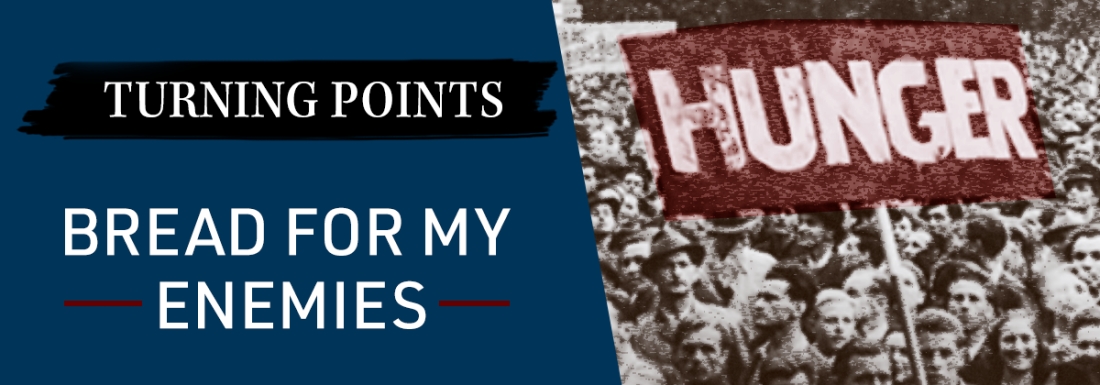What do the victors of war owe the vanquished?
The United States and its allies struggled with the answer at the end of World War II. Millions of people in Europe and Asia faced famine, among them a German populace that had seen the devastation of farmland, livestock, and machinery and destruction of its transportation system. The Allies balked at including the country in food relief efforts, but America followed its values – and interests – and acted.
In the launch of a new series, Turning Points, in partnership with the U.S. Army Command and General Staff College, military historian David W. Mills looks at what went into the decision and its short- and long-term impacts. Following the direction of President Harry S. Truman, the United States poured billions of dollars into Germany’s recovery, including aid via the Marshall Plan. It eventually turned Germany into a close ally, which it remains to this day.
Mills is an associate professor in the Department of Military History at the Command and General Staff College. He holds a doctorate in history from North Dakota State University and is the author or co-author of three books: Cold War in a Cold Land: Fighting Communism on the Northern Plains, Operation Snowbound: Life Behind the Blizzards of 1949, and Great Wartime Escapes and Rescues.
